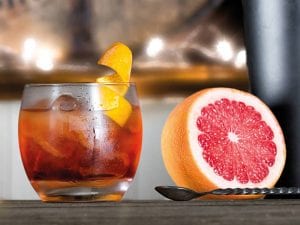Gin is enjoying a resurgence in popularity, with a wealth of interesting spirits produced right here on our doorstep. We chat to some of the enthusiastic local producers and offer up our favourite tipples!
History of gin
Gin may be one of the most popular liquors in the country, yet the colourless spirit has had to contend with a chequered history since it first landed on these shores more than 300 years ago.
Originally gin was sold as a medicine, distilled and supposedly capable of aiding kidney ailments, gallstones and gout after Dutch physician Franciscus Sylvius created genever. Brits were first introduced to it when the English soldiers assisted the Dutch against the Spanish in Antwerp during the late 16th century during the Eighty Years’ War.
The armies were known to drink genever before heading into battle, and it’s thought to be the origin of the phrase “Dutch courage”. William of Orange then arrived here to rule in 1688 and promptly relaxed laws on making spirits. Gin, which starts with a base of juniper berries, gained in popularity – among all classes – with the upper classes drinking genever and the working classes making do with a new, cheaper “imitation” gin, substituting the costly ingredients with such things as turpentine and sulphuric acid.
Subsequently, gin’s reputation took a turn for the worse. In London alone, more than 7,000 “dram shops” sprang up with an estimated 10 million gallons being distilled annually by barbers, grocers and market stall holders. Gin became increasingly cheap to produce, easily accessible, little duty was paid on it and some workers were even given it as part of their wages. The 1736 Gin Act forced anyone wishing to sell distilled spirits to take out a licence costing £50.
Only three such licences were taken, but gin’s popularity did not wane as “mother’s ruin” remained hugely popular, before a second act was passed in 1751, which raised duty, and prohibited distillers, grocers, chandlers, jails and workhouses from selling the liquor.

Thankfully this was the low point for gin and the spirit has rebuilt its once-tarnished reputation to become the UK’s most popular alcoholic drink. “We’re spoilt for choice with local gins here in the in Thames Valley” says Catriona Galbraith of The Greyhound in Letcombe Regis. “Our favourite is the TOAD Oxford Dry Gin, a delicious citrus and aromatic combination or the kaffir lime and lemongrass gin from Twisting Spirits, as exotic as it sounds with a hint of Asian spice notes.
“We like to serve our gins simply, with either a favourite tonic from the Fevertree range and garnish such as lemon, lime, orange, cucumber, mint or basil or even neat over ice, to allow the real complex botanical flavours to come through.”
Hobbs of Henley
“There’s nothing more marvellous than a gin at 11 o’clock on the river to wake the spirits…” Indeed, back in 1870, Mr Harry Hobbs, founder of Hobbs and Sons (now Hobbs of Henley) and publican of The Ship Hotel was renowned for his flamboyant beard and nature, often seen in his punt sipping his home-distilled gin of a morning. Mr Hobbs threw parties along the riverbanks, hiring out his boats for shindigs. Now, 150 years later the family’s gin is made with local botanicals.

Cotswold Distillery
Cotswold Distillery uses local raw materials, traditional kit and techniques to create its handmade gin. There’s a 500-litre pot still, (only filled ¾ full to make sure the vapours get contact with the copper during distillation).
Distilled with nine carefully considered botanicals, the Cotswolds Dry Gin has an aromatic twist of juniper, coriander seed, angelica root, local lavender, bay leaf, hand-peeled fresh lime and pink grapefruit zest, cardamom and black peppercorn. The distillery building itself is a miniature version of what is usually an enormous plant and the shop and tasting rooms are more like a cosy Cotswolds cottage – you can sit by the wood burner to sip their outstanding natural spirits.
Foxdenton Estate
“The use of British fruit combined with traditional recipes is what makes our fruit gin so quaffable,” says Nick Radclyffe of Foxdenton Estate. “There is nothing better as the nights draw in than the warming tipple of a fruit gin cocktail such as the Ping Pong.” Foxdenton Estate creates gin liqueurs with plums, sloes and damsons using recipes that date back several generations with father and son gin producers, Nick and Piers, choosing the traditional tipples they know and love. Sloe Gin, 70cl £24.50.
![]() For more information please visit www.goringgapbc.org.uk
For more information please visit www.goringgapbc.org.uk








